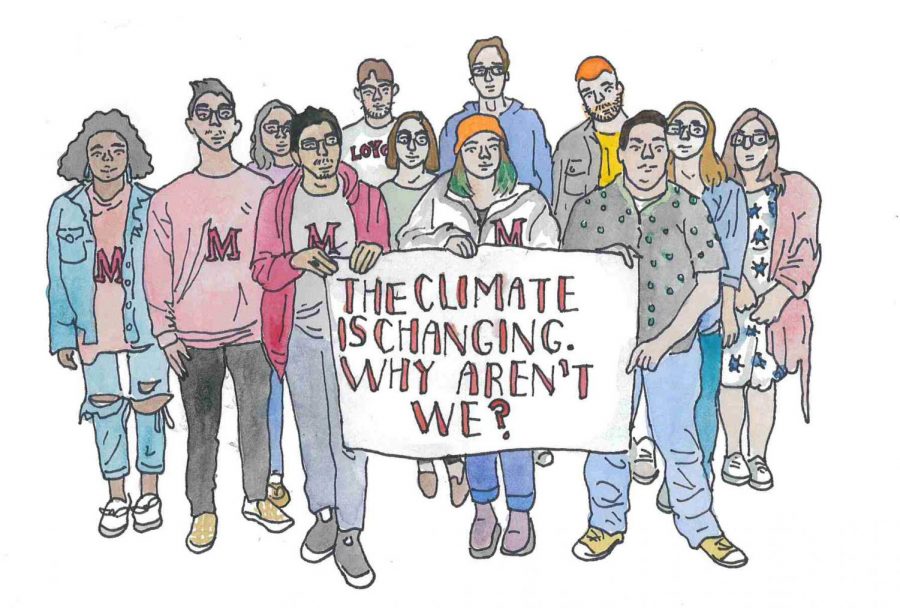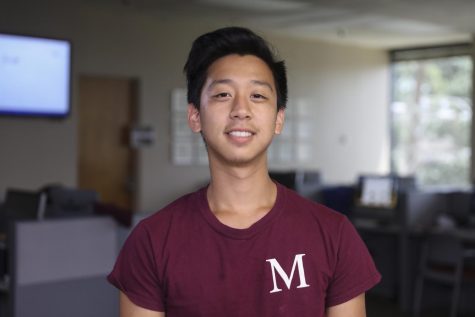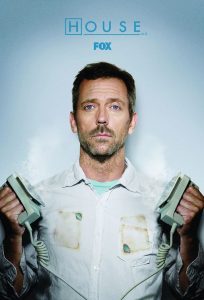Editorial: It’s time we change our coverage. Here’s why.
February 9, 2020
The Maroon is a news outlet that prides itself on its coverage of every corner of Loyola. We have written features on our favorite professors, designed photo galleries for our most fun on-campus events and reported on the most pressing breaking news.
But we have missed the mark with our science coverage.
Because the fact of the matter is that Loyola’s College of Arts and Sciences has done some really amazing work, and we’ve missed it for far too long.
But here’s the good news.
Starting this issue, the Maroon will begin running a reporting series dedicated to Loyola-related scientific advances.
The science-reporting series is not only meant to highlight some of the amazing work that Loyola’s College of Arts and Sciences has been doing, but also respond to a desperate need of better science journalism as a whole.
And because of this national decline in science journalism, the fossil fuel industries and politicians were able to jump on issues like global warming and vaccination safety and broadcast their version of the truth before the facts could.
So now, we’re living in a world where the head of the Environmental Protection Agency was a former coal lobbyist.
How can the environment be protected by someone who lobbied for fossil fuel industries?
Meanwhile, our president — the leader of the free world — fearmongers about the connection between vaccines and autism on Twitter.
The connection between vaccines and autism has been debunked time and time again, but the only reason that willful ignorance is still around is because powerful people like our president use the country’s scientific illiteracy for political gain.
And he uses this ignorance to repeal dozens of rollbacks on air pollution and emission, water pollution, and drilling and excavation.
Too many people are being hurt by our government’s scientific illiteracy. We can’t keep following their lead.
Because while our government keeps putting the climate crisis on the back-burners, the planet is still getting hotter and sea levels are still rising. Global warming isn’t going to stop and wait around for us to figure out that we need to care about the planet, and mumps and measles aren’t going to stop infecting our community and wait for parents to figure out they need to vaccinate their children.
Scientific literacy is crucial because understanding science is essential to understanding world and human issues.
Understanding climate science is understanding why one of the deadliest hurricanes in human history flattened Puerto Rico. Understanding climate science is understanding why thousands of refugees are fleeing their homes because they will soon be unlivable. Understanding climate science is understanding that we don’t have much time to save New Orleans from sinking permanently.
All of these human issues like migration and disaster relief are connected to science one way or another, and the leaders of our country are too willfully blind to see that.
Trust in science is under attack; and that’s why we’re changing. We have to do better reporting on the scientific community so we can have informed conversations about human problems.
The very essence of the scientific method is driven by curiosity and analyzing the world with an open mind, and now, so is The Maroon.
The goal of our new science-reporting series is to build a natural curiosity and excitement for scientific development at Loyola, because becoming more scientifically literate is how we’re going to make our community and the world better.









Alum '07 • Feb 11, 2020 at 10:41 am
Kind of confused….when I look at journalism on climate science, I don’t see any domination by the fossil fueld industry. In fact, it’s the complete opposite! Say anything against environmental activists and you will be immediately demeaned as ignorant or “against science”. If you have any opinion other than being hard-core green, you’re basically treated like a pariah.
And yes, we should pay attention to science. And we should start thinking about things like, “is it appropriate to blame one hurricane in Puerto Rico on a 100-year warming trend?” I’m not saying that there is no relation between hurricanes and warming, but it’s pretty unscientific to blame one hurricane on a rise in temperature over a century.
If the Maroon really wanted to be thought provoking, revist some of these topics. Research how many environmentalist claims are really not at all scientific. Scientists are telling us that the world is getting warmer, but there are also nutbags telling us that we’ll all be underwater in 30 years….again not good science.
I challenge the Maroon to make journalism on environmentalism an actual debate rather than just treating any opposing view as dumb/ignorant and any environmentalist view as infallible.
Ellen Byron • Feb 11, 2020 at 12:34 am
Fantastic! You guys and gals at the Maroon are amazing. Keep fighting the good fight!